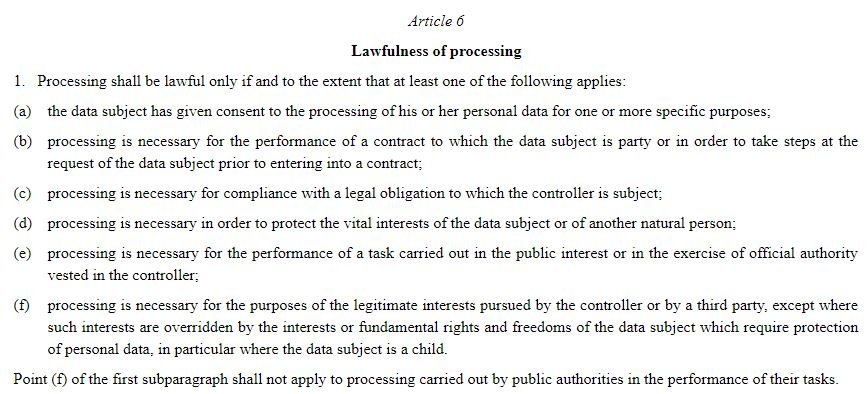
This is a thread with some reactions to reading the DPC decision on Limerick's CCTV systems. A few points:
- the decision is comprehensive and methodical;
- it should be required reading for legislators and large data controllers (particularly State bodies)
- it is damning.
- the decision is comprehensive and methodical;
- it should be required reading for legislators and large data controllers (particularly State bodies)
- it is damning.
https://twitter.com/rossamcmahon/status/1481637887128915975
There is an element of everything-that-could-go-wrong-going-wrong and, in fact, what it reveals is much worse than what I had feared or suspected. As Fergal says:
https://twitter.com/Fergal/status/1481661582350372865?s=20
It is astounding that some of these issues were ongoing at the time they were under inspection, not least due to high-profile nature of the introduction of the GDPR and, to some extent, the fact that some (!) local residents drew attention to the issues.
I say it should be required reading for legislators (due to commentary on legal bases and consideration of some specific legislative provisions) and DCs, esp DPOs, for consideration of legitimate processing, DPIAs, transparency, proportionality etc.
The headline is the €110,000 fine but specialists will be interested in the breakdown - for example, €35,000 of that was a specific fine for rejecting SARs. This should be a warning to some.
The Deputy DPC responsible for leading the investigation described the decision this morning as making for "disturbing reason".
Highlights it was not the first report on LAs but stood out for extent of activity.
play.acast.com/s/60b372fb-6c9…
Highlights it was not the first report on LAs but stood out for extent of activity.
play.acast.com/s/60b372fb-6c9…
Makes similar points that I made earlier on the same radio show - failures in governance; the law is there to allow CCTV "but Limerick City and County Council have broken the law."
It's worth listening to the interview with Deputy DPC Tony Delaney for a sense of the regulator's attitude to Limerick City & County Council. Remarkably forthright in criticism of the Council and the elements that "disturbed" the DPC.
play.acast.com/s/60b372fb-6c9…
play.acast.com/s/60b372fb-6c9…
• • •
Missing some Tweet in this thread? You can try to
force a refresh







